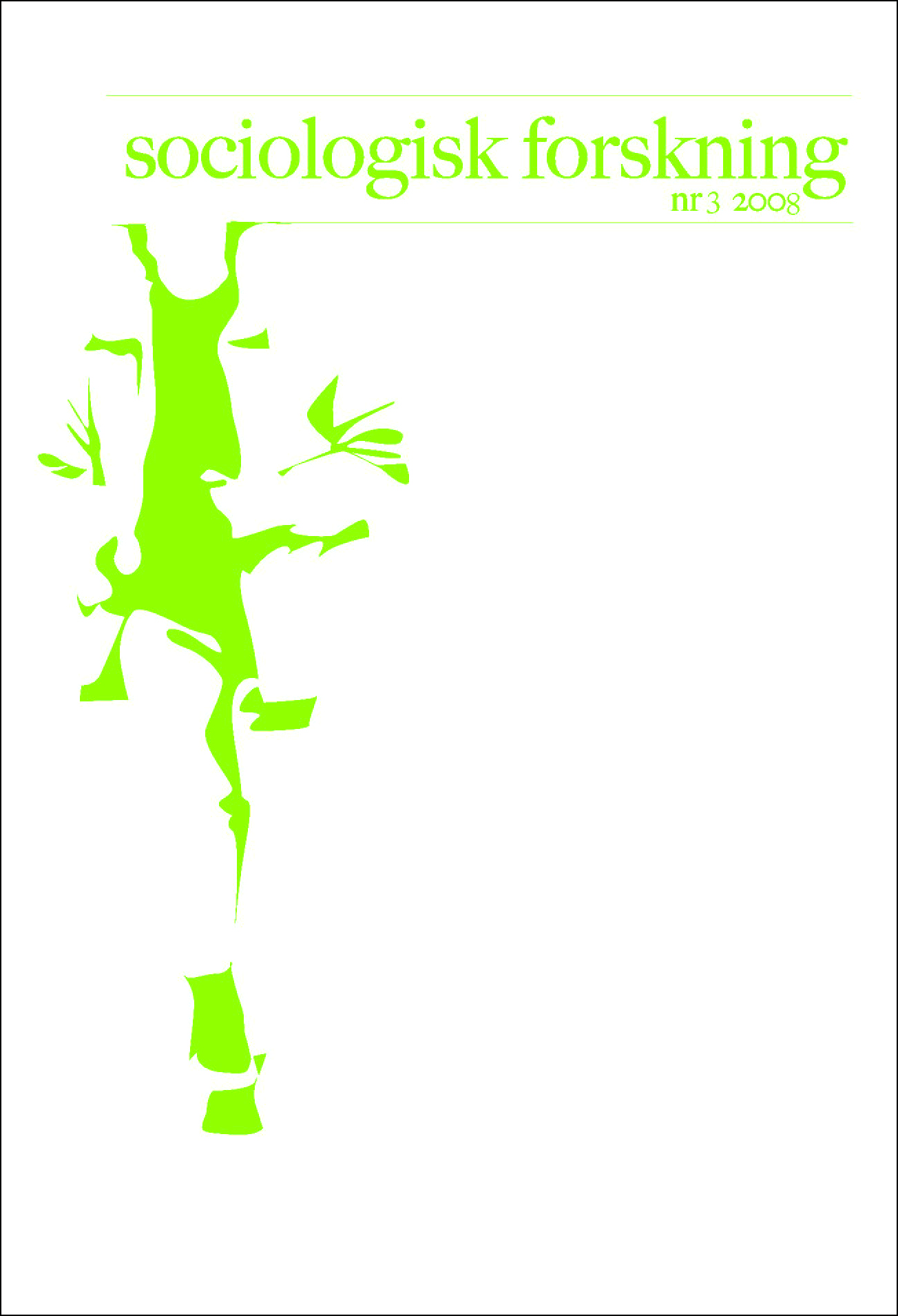Tillhörighetens gränser
Internationell adoption och ursprungets betydelse i svensk utredningsretorik
DOI:
https://doi.org/10.37062/sf.45.19247Nyckelord:
social categorization, transnational adoptees, origin, belonging, discourseAbstract
Boundaries of belonging: transnational adoption and the significance of origin in Swedish official rhetoric
This article explores how the category of ‘transnational adoptees’ in Sweden is constructed in two Official Government Reports (SOU). The article is inspired by poststructuralist perspectives on welfare and social categorization, and draws from a postcolonial and feminist theoretical framework. ‘Transnational adoptees’ as a category is understood as constituted through discourse, and given meaning in different contexts. In the reports, a fundamental importance is attached to the fact that individuals with a background as transnationally adopted have been separated from their birth family and country of birth. It is argued that mental problems and a split identity are consequences to be expected from the separation. (Re)connection to the origin is therefore considered to be crucial for the well-being of the group. The article concludes that this line of reasoning is based on a specific logic of blood and roots, in which ‘transnational adoptees’ are understood as belonging to their countries of birth, rather than Sweden. The logic of blood and roots can be read as a form of racialized othering, but also as a discursive exclusion of ‘transnational adoptees’ from Sweden as an imagined, national community.
Downloads
Publicerad
Referera så här
Nummer
Sektion
Licens
Allt material i Sociologisk Forskning publiceras med omedelbar öppen tillgång (open access), under Creative Commons-licensen CC BY-NC-ND 4.0.
Allt innehåll i tidskriften är fritt tillgängligt utan kostnad och får för icke-kommersiella syften fritt läsas, laddas ned, kopieras, delas, skrivas ut och länkas. Innehållet får dock inte ändras. När innehållet används måste författare och källa anges. Upphovsrätten till innehållet tillhör respektive författare. Inga publiceringsavgifter tas ut.





